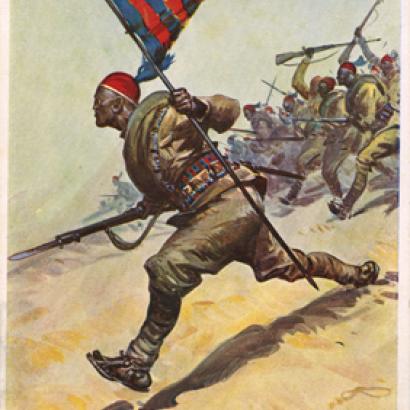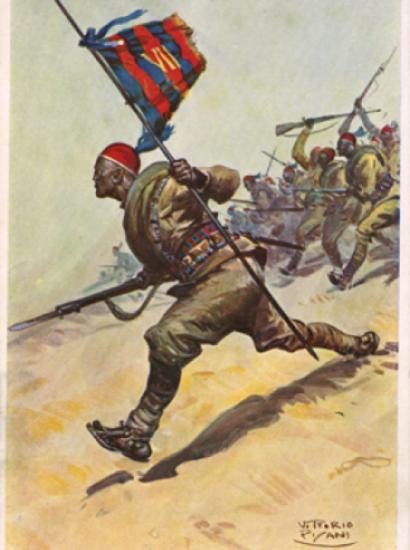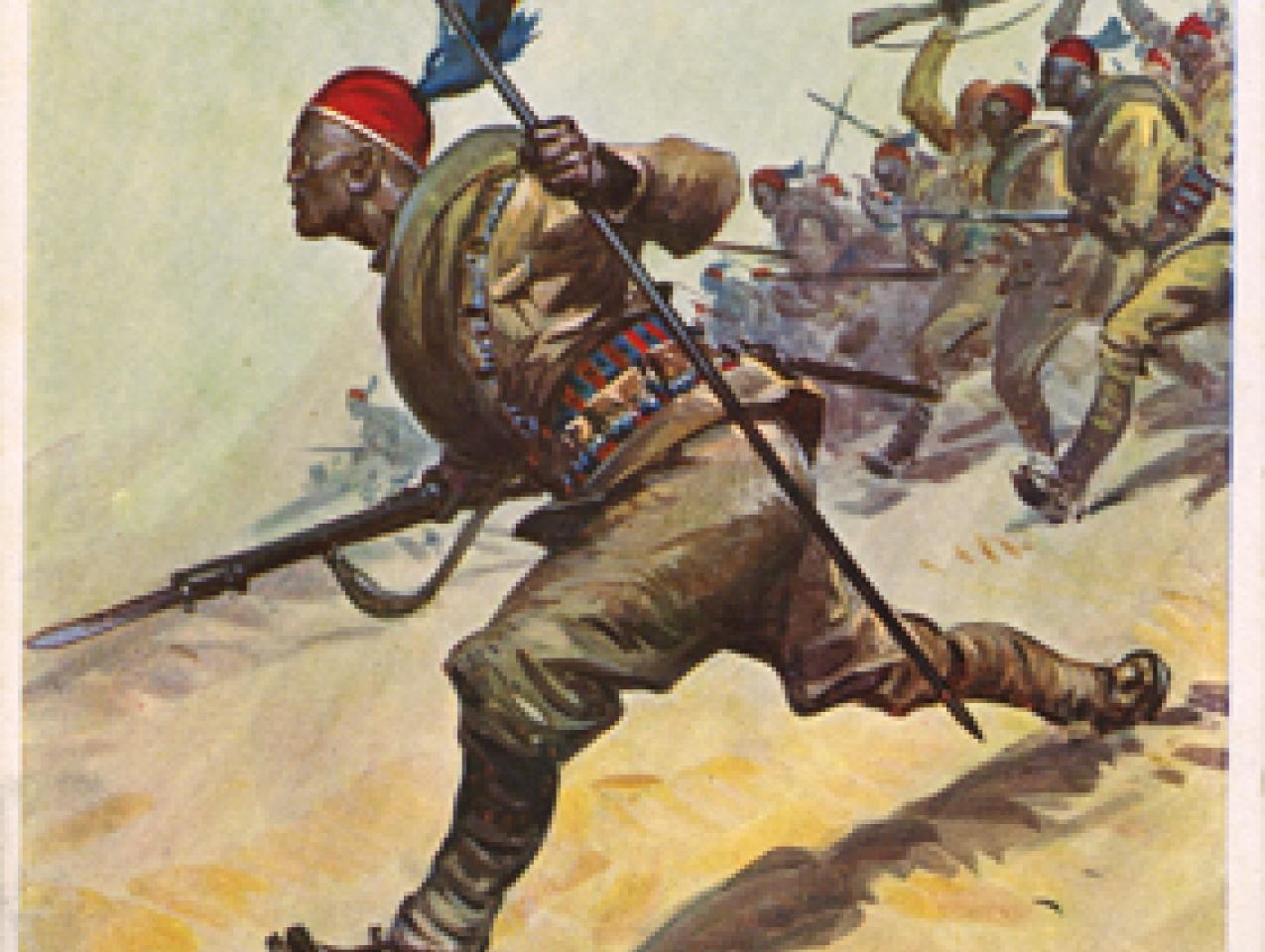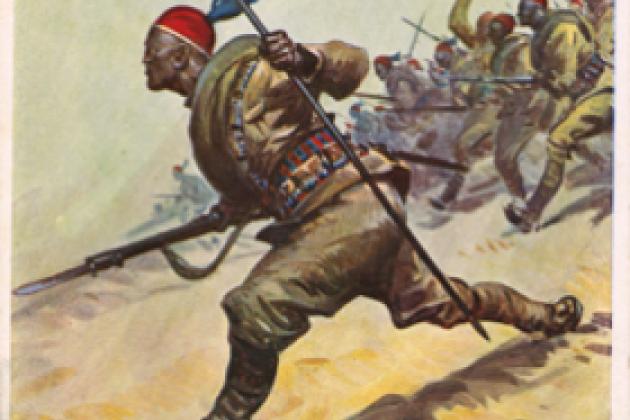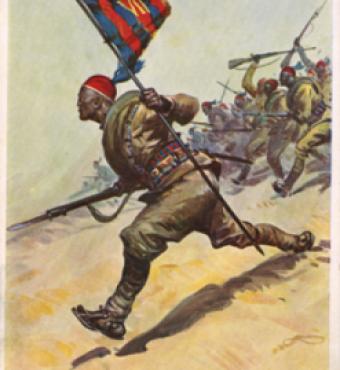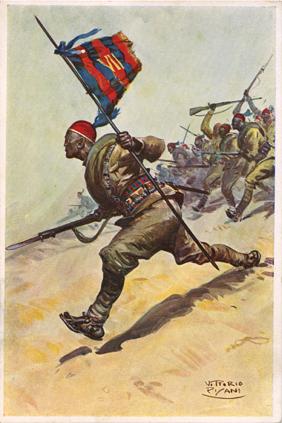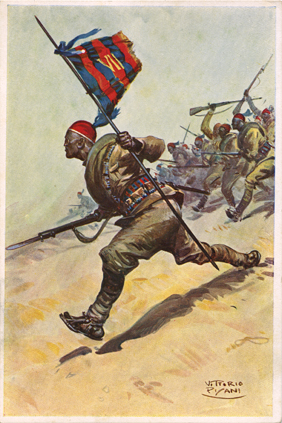
The Arab Spring is a series of events of truly world-historical importance. It has already reshaped the Arab World and the Middle East more fundamentally and more rapidly than any event in the past several centuries. Even the emergence of the modern Arab states after the fall of the Ottoman Empire was more protracted and gradual. The suddenness and scale of the events of the past three years has a disruptive and transformative power all its own. The outcome of that transformation is far from clear at this point. It is, in fact, highly contingent on a series of unpredictable events and interactions within the Arab World, between the Arab World and the wider Middle East community, and with external powers, including especially the United States. Two things are already clear, however. The world as we knew it before the Arab Spring is gone forever and will not return. And the nature of the order that replaces it will have profound and lasting impacts on the entire world.
The Arab world has had very little experience in governing itself over the last few centuries. The Ottoman Turks had taken control over almost all Arab communities by the end of the 16th Century and continued to exercise suzerainty over, if not actually to rule, the Arabs until the 19th. As Turkish control over Arab lands broke down, however, other imperial powers stepped in, especially the British and the French during the 19th Century. The first modern Arab states emerged after the end of the First World War and, with it, the Ottoman Empire, as various Arab communities achieved independence, often through revolutions against either the Ottomans or Western Empires or, sometimes, both.
The crisis of Arab governance in the 20th Century was not a consequence of any innate inability of Arabs to govern themselves, but rather a reflection of several centuries of imperial and colonial rule during which they were not allowed to do so. When they finally did establish their own states and systems of government, they found themselves without indigenous consensus on what those states should look like and how they should be ruled.
It is far too strong to say that all of the Arab states are imperial inventions with no significance to their peoples, who are thought to yearn for the elimination of those states and the reunification of the entire Arab world under a single dominion. The specific Arab states that exist today emerged during conflicts in which the inhabitants of those states took an active role. The Arab Revolt against Ottoman rule enabled the House of Saud to gain control of much of the Arabian Peninsula by military conquest in the 1920s and fashion of it a state more or less to the liking of the Saudis. Egyptian and Iraqi rebellions at about the same time led to the formation of states that also saw themselves as being the modern incarnations of ancient empires–the Pharaonic Empire in the case of Egypt and the Mesopotamian empires and kingdoms in Iraq. Although some Egyptians and Iraqis–along with Arabs in other newly-emerging states–believed strongly that the parceling of the Arab lands was wrong, engines of nationalism were often stronger than the drive of pan-Arabism.
That is why nationalist leaders such as Gamal Abdel Nasser in Egypt (who was also a pan-Arabist), Saddam Hussein in Iraq, and Hafez al-Assad in Syria were able to gain traction and popular support among at least some of their peoples. But the strength of the Hussein and Assad regimes resulted in large part from the support that the minority groups they represented (Sunni Arabs in predominantly Shi’a Iraq in Saddam’s case; Alawites in predominantly Sunni Syria in Assad’s) had received from colonial rulers precisely because they were minorities. Their leaders were willing to exchange loyalty to foreign powers for support against internal rivals whom they could not otherwise have defeated. Arab nationalism in the Levant and Mesopotamia, therefore, rested on minority rule.
It also rested, fundamentally, on secularism. Only the Saudis justified their rule on a religious basis, both because the House of Saud had been inextricably intertwined with the Wahabi clergy since the 18th Century and because it felt the need to defend the Saudi king’s position as “custodian of the two holy mosques” in religious terms. Nasserite Egypt, Ba’athist Syria and Iraq, the sui generis Gadhafi state in Libya all fused elements of nationalism, socialism, and militarism into a noxious but effective basis for power–all of which saw Islamism as a threat to the continued strength and even existence of their states. None of them went as far as Atatürk did in attacking the very role of Islam in their societies, but all of them marginalized religion, often violently and brutally. This secularism generated (or exacerbated) rifts within these societies both because it conflicted with the beliefs of many Arabs and because religious groups and societies had played important roles in the liberation struggles that brought the secularists ultimately to power in the first place.
Almost all the Arab world had come to live under Arab-ruled states without imperial or colonial interference in their government by the 1960s. It is only in the last four decades or so, therefore, that political debate among Arabs has of necessity centered on how Arabs are to rule themselves rather than how they are to interact with foreign masters, oppressors, and/or exploiters. That debate, moreover, did not proceed from any consensus on the role of religion in government. Arabs have had to work through these issues, which preoccupied the European peoples for at least 1,500 years, in half a century. It should surprise no one that they have not found it easy to do so.
The Arab Spring resulted from the confluence of a number of drivers. Islamists, both political and violent, have been attacking the legitimacy of secular Arab states since their foundations. They have tried, and in some cases succeeded, to seize the opening presented by the Arab Spring to advance their agendas peacefully and by force, but they did not create the opening. The most important driver was the sheer ineffectiveness, corruption, and repressiveness of the targeted regimes combined with a belief that change might be possible. The importance of the second piece was demonstrated by the rapidity with which the Arab Spring spread once it became clear that change really was possible.
But change to what? There continues to be disagreement among Arabs about how they should rule themselves. Islamists won elections in Egypt and Gaza–and even in Iraq, Nuri al-Maliki’s Da’wa Party is one of the most Islamist of the nominally secular parties and has been dependent on support from overtly clerical groups. Tunisians appear to be working cautiously toward an accommodation between more moderate Islamists and secular groups. Islamist groups have also remained marginalized in the halting (and quite possibly halted) process of state-reformation in Yemen. And the Egyptian military’s removal of the Muslim Brotherhood government of Mohammad Morsi had strong, although far from universal, popular support (which is not to say that it was legal, right, or an acceptable form of political change).
One thing that is clear is that Arabs in general do not see representative government as an alien import that is incompatible with Islam. The one thing that all of the revolutions in the Arab world since 2011 have in common is that they installed elected governments in place of dictators. Some Arabists would have had us believe that democracy would never and could never take root among Arabs, and, furthermore, that Arabs as a people did not desire it. That view appears unquestionably to have been discredited. Arabs as a people certainly do want it, participate in elections in larger numbers than Americans when given the chance, and are in many cases willing to fight and die for it, with or without foreign assistance or intervention. If that principle emerged as the central result of the Arab Spring, it would certainly be an important step forward for stability, humanity, the rule of law, and many other important human values in the Arab world.
Alas, it remains unclear if this will be the outcome. Arab leaders have undermined the validity and appeal of democracy in, for example, Egypt, where the military unseated an elected (if incompetent and in many ways malign) government after one year, and in Iraq, where Maliki has been steadily undermining the rule of law and the validity of elections. Libyan leaders, abandoned by the international community (and the United States) after the intervention that helped bring them to power, have struggled to create a state that can function at the most basic level. The state in Yemen (“elected” in a plebiscite with one candidate) is already well down the road to failure. There is real reason for concern that democracy will be discredited in the eyes of this generation of Arabs because it is so easily undermined and so apparently ineffective at governing.
Violent Islamists, of course, are seizing upon every opportunity to argue that current events prove that democracy is a violation of Allah’s will. “Bullets, not ballots,” is their slogan in Egypt and elsewhere as they argue that only violence and unlimited brutality of the sort in which they specialize can bring effective and just government to Arabs. Most Arabs have proven remarkably resistant to this argument, despite the obvious problems they have encountered on their rocky road to representative government. But should this vile and violent Islamist view prevail, the outcome would be dire not only for Arabs, who want and deserve better, but for the entire world.







